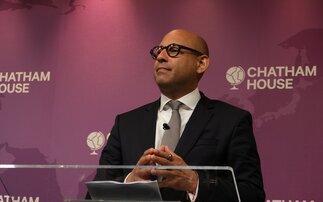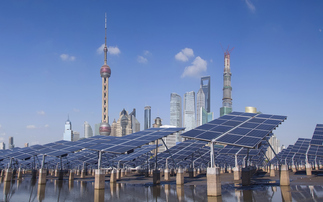Egypt also submits plans to cut greenhouse gas emissions
Pakistan has submitted a last-minute national climate plan to the United Nations, six weeks after the agreed deadline and with no measurable goals.
The country's Intended Nationally Determined Contribution (INDC) on Thursday highlighted Pakistan's commitment to working with the international community to combat climate change, but stressed growing development needs would require "affordable sources of power generation" and it made no concrete pledges to reduce emissions.
"Pakistan is committed to reduce its emissions after reaching peak levels to the extent possible subject to affordability, provision of international climate finance, transfer of technology and capacity building," the submission said, adding that the country will be able to make specific commitments only once it has reliable data on its peak emission levels.
The submitted plan also includes a paragraph on adaptation, calling it "a vast area of untapped opportunities". Investment costs for adaptation are still being determined, the document said.
The one-page submission is significantly shorter than drafts seen by civil society observers, which set out slightly more ambitious options to cut greenhouse gas emissions 10 to 20 per cent from business as usual by 2030, according to Climate Home. Pakistan's federal climate change minister told Reuters in July the submission could include a goal to reduce its greenhouse gas emissions by 30 per cent from 2008 levels by 2025.
Pakistan suffers from huge energy challenges, with power shortfalls approaching 50 per cent of national demand in recent years, while a report this year said energy demand could double in the next 10 years and quadruple in the next 20. To address the shortfall, the government is making a push to build coal-fired power plants, with the help of foreign investment from China and others.
Pakistan produced just 0.7 of global greenhouse gas emissions in 2012, despite holding around 2.5 per cent of the world's population, while the nation is suffering from increasingly intense weather events. A heatwave in the Sindh provincial capital this summer saw temperatures breach 50°C, a death toll of more than 1,200 people and 65,000 patients treated for heatstroke.
Egypt, which accounts for just half of a per cent of global emissions, submitted its plan on Wednesday. The document proposed ways to achieve high CO2 mitigation, including through technology transfer and financial flows from industrialised countries.
"The key for Egypt to mitigate greenhouse gas emissions is to provide appropriate foundations for the development of low-carbon energy systems," the document read, which said it currently estimated it would require about £73bn in international support.
The country also pledged to phase out energy subsidies within three to five years, promote energy efficiency, and increase the use of renewable and nuclear energy.
Egypt has also been hard hit by heatwaves in recent years, with temperatures breaching 46°C in the south this summer.
The Egyptian government has previously set a goal for renewable energy to supply 20 per cent of national electricity by 2022 - double the current share.
This article is part of BusinessGreen's Road to Paris hub, hosted in association with PwC.







